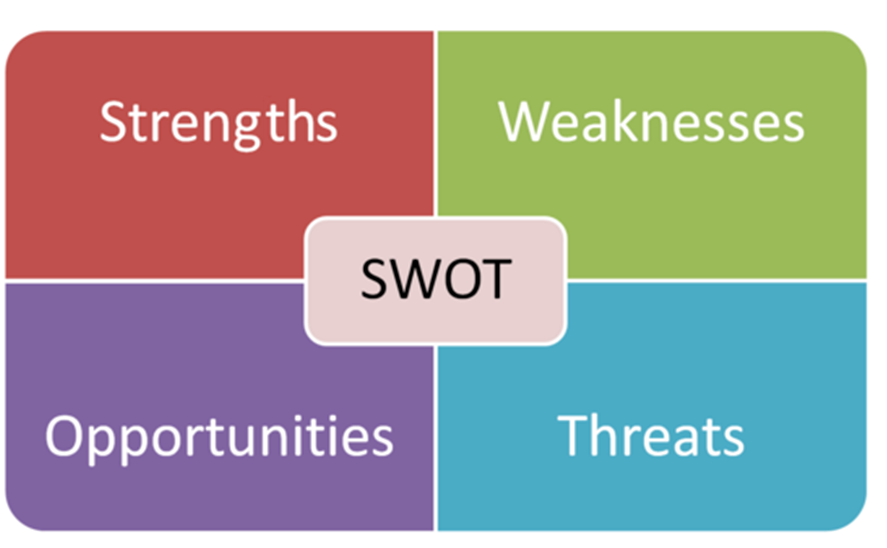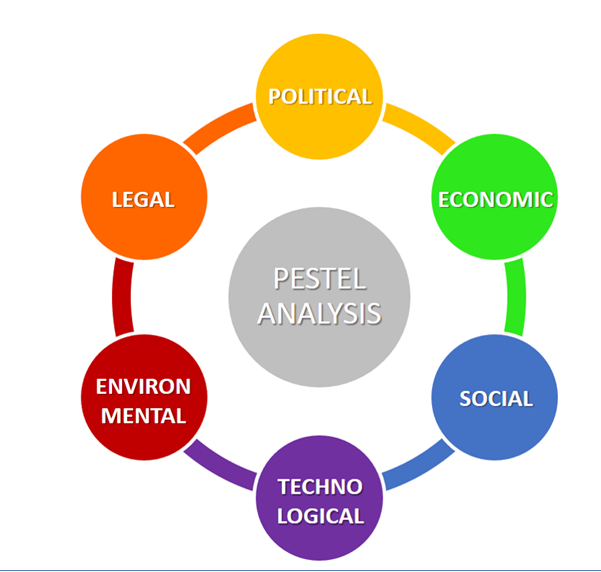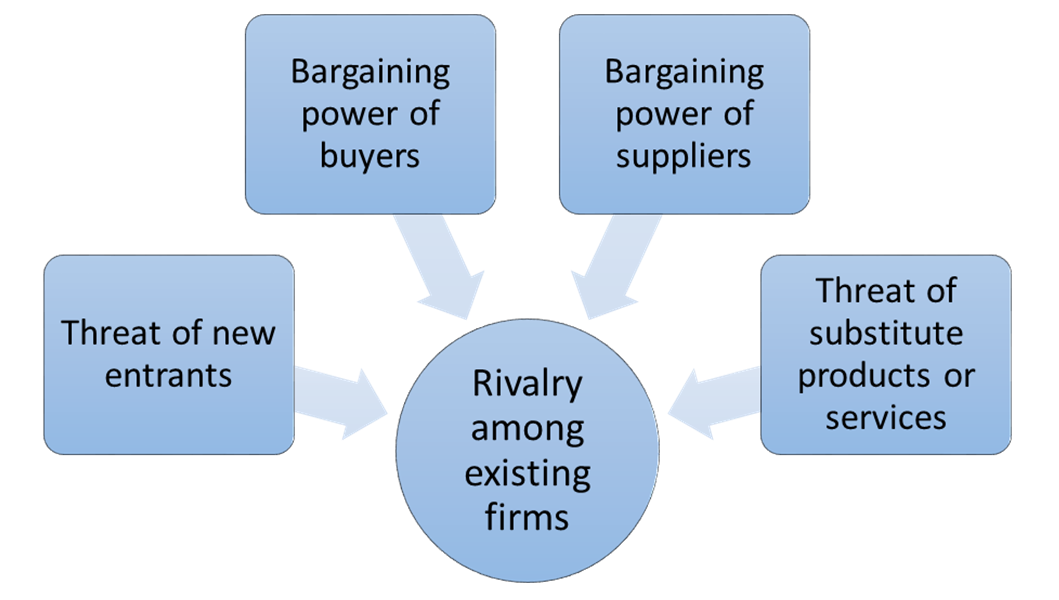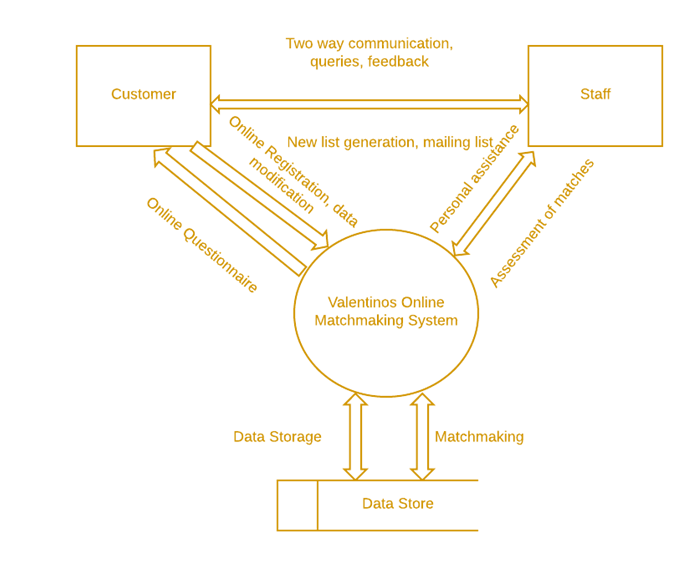CI7230 Modelling Enterprise Architectures Coursework 1 Assignment
This report is based upon Valentinos which is a personal introductions agency famous for offering matchmaking services to the people of the UK. The organisation was established in the year 1976, through the use of the internet as the medium the establishment seeks to offer a platform where both women and men can meet and greet and take up the decision of carrying out their relationship forward.
The organisation also offers value for money and services to the people at an annual cost of £ 150 for the membership. The report will also consider undermining challenges that include downsizing market share and growing competition. The mission statement of the firm is analysed in order to understand the operations of the organisation.
PESTEL, SWOT and Porter’s Five Forces will also be analysed in order to understand the competitive business environment of the UK. Finally, the cost-benefit and Zachman framework will also be accessed in this report.
Business modellingof Valentinos
Establishing a romantic connection is a fundamental human need. The mission statement of Valentinos benefits them in carrying out their operations while offering them a platform through which people can meet with each other and build romantic connectivity among each other.
Balanced Business Scorecard has been referred to as the strategic management process which is used by the organisation in order to measure the performance with the help of matrics in order to access the internal as well as external business functions for the establishments (Nørreklit, et al., 2018).
Balanced Business Scorecard is also useful for the business realisation plan to offer feedback to the enterprise along with accessing quantitative results for the purpose of better decision making.
It has also been noticed that integrating the business realisation plan using a balanced business scorecard also benefits the organisation in better strategic planning which ensures about interrelated strategic objectives that enhance the overall performance of the organisation(Keyes, 2016).
This process is also used for the purpose of improving strategic communication within the enterprise through the help in building business realisation planning. Better strategic communication aids in facilitating the companies in understanding the strategies that help in engaging the staff in order to grow the overall efficiencies of the business establishments.
The integration of a business realisation plan along with a balanced business scorecard helps in retaining the higher quality of management information system that guides the establishment in determining the strategic decision-making process(Hansen & Schaltegger, 2016). Hence, a balanced business scorecard with a business realisation plan increases the productivity of the organisation.
| Financial perspective
· Financial growth along with determining results · Higher profit margin · Key financial parameters and performance |
Learning and growth
· Proper knowledge management · Employee growth and turnover · Providing strategic information |
| Customers
· Increasing customer satisfaction · High quality of services · Customer preference service offerings |
Internal business processes
· Increasing the concept of cross-selling of the products · Proper customer relationship management · Sustaining work culture and employee confidence |
Figure: Balanced Business Scorecard
Source: Author

Figure 1: SWOT analysis.
Strength: The strength of Valentinos includes offering matchmaking services to the people while maintaining the confidentiality of their information (Hsu, 2016). Moreover, it has also been noticed that the business organisation uses the internet as its medium for the purpose of targeting a large number of people in order to grow its business in the UK.
The best value for money matchmaking services that Valentinos offer to its customers in a minimal amount of £ 150 for annual membership also helps the firm in building their brand reputation.
Weakness: The weakness of the business organisation comprises using backdated technology which is 10 years old. Failure for the establishment in considering the latest technology has made it difficult for the organisation in offering better services to the people(Gupta & Mishra, 2016).
The lack of investment in technology has also increased the challenges related to sustainability for the business while working in the UK competitive business environment.
Opportunity: Valentinos uses newspaper, magazines and other form of media to reach out to the people in order to promote their services to them (Shulman, et al., 2018). Moreover, it has also been noticed that the UK has eight million people who are in the age group of 18 to 24 years old which also makes it easier for the organisation to offer better services to the people in order to grow their business.
Valentinos also has recruited qualified personnel who are experts in offering service assistance to people over the telephone. The Data Protection Act that is used by Valentinos also makes it easier for the firm to maintain the confidentiality of the people.
Threat: Growing competition within the UK online matchmaking is growing immensely which is making it difficult for Valentinos to establish their business within the UK business environment.Growing regulations in Data confidentiality is also an increasing threat to the organisation.

Figure 2: PESTLE Analysis.
Political: Examining the political situation of the UK taxation information has been gathered that includes corporate taxation rate in the country has increased to 19% that has made it difficult for Valentinos to establish their business within the UK (Gov, 2020).
Taxation rate also infusesthe cost of expenditure that increases the risk of business sustainability.The growing inflation rate of the UK by 1.8% impacts on the purchasing capability of the consumers due to higher prices of the products within the UK.
Economic: Valentinos enjoys significant economic growth of 1.8% while operating in the UK, the growing economic condition of the country is enabling the matchmaking firm in growing their business organisation (Tradingeconomics, 2020).UK’s economic growth also attracts FDI investment within the country which helps in building the infrastructure of Valentino’s business establishment.
Social: The concept of offering matchmaking services to the UK people also turns out to be beneficial for the firm. The rate of the migrating population within the UK has increased by 3 million in the last decade(Independent, 2020). Besides, the lifestyle of the UK people is also changing hence the match matching firm has a growth potential of growing their business within the UK.
Technological: Investment of 3 billion has been made within the technology sector to build customised services that aim towards increases the overall satisfaction of the customers. Therefore, Valentinos has good growth opportunities while operating in the UK.
Environmental: Considering the negative impact of greenhouse gases and ecological imbalance, the firm has designed its online app that emits less radioactive signals. Therefore, technological up-gradation has helped Valentinos in retaining sustainability within their organisation.
Legal: Data Protection Act of 1988 has been maintained by Valentinos in order to maintain the confidentiality of people’s information so that the risk of data theft can be eliminated (Gov, 2020). Considering the legality regulation also helps the firm in maintaining business efficiency.

Figure 3: Porters 5 Forces Analysis.
Bargaining power of suppliers: Examining the powers of suppliers it has been noticed that their power is higher as because the software and technical assistance that is offered by them are unique in nature. Moreover, suppliers also play an important part in the decision-making process which also increases the power of suppliers.
Bargaining power of buyers: Buyers play a critical role within Valentinos because the services are being designed according to them, therefore their power is higher(Juliana & Nyoman, 2019). Enhanced business services and offerings entice the attention of the customers towards the firm whereas the growing cost and lack of innovation make them shift their loyalty towards other business organisation.
Industry rivalry: Rivalry within online matchmaking organisation are higher as because another firm also offers similar services therefore the rivalry among the industry becomes higher(Rothaermel, 2016). Enhanced innovation and differentiation offerings also increase competition within the industry.
New element threats: The cost of capital, resources required along with appointing expert professionals increases the threat of sustainability for the organisation. Hence, considering this situation it has been noticed that the threat for new entrants becomes higher while operating in an online matchmaking business organisation.
Substitute threats: Evaluating the level of threat that is possessed by the substitute are low (Aithal, 2017). The reason for this is the technology and the unique services that are being provided to the customer’s benefits in eliminating the threats of a substitute.
The IT project is to develop an online website for Valentinos which can be used by the customers to have their match list in an instant after making payment.
Business strategy
The strategy is to increase the number of user registrations and enhance the scope of accurate matches.
The website would be responsive and fast as compared to the old system for enhancing user experience.
The project vision statement presents an outcome of the functions of a system which are desisted and can be used for reference by the developers in the beginning stage(Heagney, 2016).
The development of the IT system for matchmaking of the customers at Valentinos has the vision statement of “to design a responsive and streamlined matchmaking system for the customers which will be available in the online platform and be able to present real-time updates to the users”.
The project vision statement of the company would be to support registration of the clients and b able to receive payments for sending them a questionnaire which has to be populated for getting access to the list of matches for the individual users. The customers should also be able to modify their personal details as well as hide their personal information from their profiles. The preferences and belongings of the partners can also be modified.

Figure 4: Scope diagram.
Source: Author
The functions of the system to be developed along with their processes are included in the scope diagram to provide an overview to the designers(Badewi, 2016). Valentinos had undertaken the decision to develop a system for matchmaking of the clients connected with the database of the company which is made available in the online domain.
The database would comprise of the details of all the customers which would be used for matchmaking and the clients would be able to receive personalised assistance from the staff regarding their matches and new list generation as well as the purpose of registration.
Not in scope:
The details of the management of the organisation as well as the HR for training of the staff.
Cost-benefit analysis is done for assessing the manner in which the benefits of investment can be achieved by taking effective decisions. The cost-benefit analysis for the matchmaking company is provided for 3 years in the context of their project.
| Item | Cost | Cost | Cost | Benefits | Benefit | Benefit | Benefit |
| Year 1 (£) | Year 2 (£) | Year 3 (£) | Year 1 (£) | Year 2 (£) | Year 3 (£) | ||
| Website and database development | 8,000 | – | – | Yearly customer registration | 6,000 | 7,000 | 8,200 |
| Maintenance | 100 | 500 | 1000 | Request for new list | 400 | 800 | 1,000 |
| Promotion | 500 | 1,000 | 2,000 | Repeat yearly subscription | 1,000 | 1,500 | 1,800 |
| Total | 8,600 | 1,500 | 3,000 | 7,400 | 9,300 | 11,000 |
Cost-benefit ratio for the 1st year = 8600/ 7400 = 1.62
Cost-benefit ratio for the 2nd year = 3400 / 10400 = 0.16
Cost-benefit ratio for the 3rd year = 3900 / 11200 = 0.27
The cost-benefit analysis of the project for Valentinos suggests that the firm will start achieving more benefits from the 3rd quarter of the second year and will continue to benefit in the long term.
The profit and loss statement accounts for the revenues and cost of the business over a period of time. A three-year profit and loss analysis have been generated for Valentinos to assess the profitability of the project of development of the IT system.
| Year 1 (£) | Year 2 (£) | Year 3 (£) | |
| Sales Amount | 7400 | 9300 | 11000 |
| Cost | 8600 | 1500 | 3000 |
| Total profit | -800 | 7800 | 8000 |
| Expenses | |||
| Marketing | 500 | 1,000 | 2,000 |
| Reengineering | – | 100 | 300 |
| Miscellaneous | 100 | 200 | 300 |
| 600 | 1300 | 2600 | |
| Operating income | -1400 | 6500 | 6400 |
| Salaries | 500 | 800 | 1000 |
| Maintenance | 100 | 500 | 1000 |
| 600 | 1300 | 2000 | |
| Net profit | -2000 | 5200 | 4400 |
The above table representing profit and loss analysis of the matchmaking IT system development of Valentinos details the profits or losses that would be earned by the company in the first 3 years of operations after using the system.It is seen that the company would face a loss of £2000 in the first year of operations but will gain a profit of £5200 and £4400 in the second and third year of using the system.
The functional requirements of the system and their priorities are listed based on the maximum priority to the least priority:
Models:
Models like ERD and DFD are essential for conceptualising the entire flow of commands in the system in addition to assessing the dependencies amongst units.
Use cases:
The use cases are advantageous for determining the functions of the actors and how they interact with the system.
WBS:
The project would require a WBS for classifying the tasks as well as the schedule based on which the works are done along with the dependencies of the system.
Prototype:
Prototypes are essential for meeting the requirements of the clients in addition to the development of the system to perfection.
Class diagrams:
Class diagrams are required for creating an overall structure of the system in addition to signifying the attributes of the classes and the objects(Turner, 2016).
Client registration:
This is the major function of the system as it would be required to register new clients as well as give login access to the registered clients.
Storage to the database:
The system is required to link the application interface with the database for storage of the details of the clients as well as store the new lists.
Matchmaking:
This is the most crucial requirement of the system as it would be required to match the preferences of the customers followed by assessing their personal answers to match the preferences of the other users.
List creation:
The system would be required to generate the lists for the customers having at least 3 names or it would be required to create a complementary free list for the next time without any payment or transaction.
Mediating communication:
The system would also be required to be responsive and facilitate the customers to request support by talking to the staff.
The non-functional requirements of the system and their priorities are listed based on the maximum priority to the least priority:
Usability:
The online matchmaking system and website should be easy to use and navigate for the users.
Reliability:
The online system should be reliable and work every time a user logs in or request for a match. The system should display appropriate and accurate results every time(Too & Weaver, 2014).
Portability:
The system should be portable for benefiting the users to enjoy its benefits across all the operating systems and platforms.
Security:
The system is online and connected to the database of the company and hence it should be integrated with a firewall for maintaining the privacy of the customers based on the data protection act.
Maintainability:
The system should be effort-free and testable in addition to being maintainable in the future and hence adequate documentation for the process.
Functional Requirements Hierarchy
- Registration of the users
- Make payment
- Generate list
- Communication
- Meeting
Matchmaking
Matchmaking will be done by the algorithm of the system by considering the persona; details and preferences of the users as well as what they want in their partner. The compatibility is calculated and list is made with the users having highest compatibility.
Communication:
The communication module involves agreement of two matches to meet for the first time by setting their place and time preferences in the app which is further conveyed to the staff.
Assumption of produced Use case Diagram
The above diagram depicts the UML of the matchmaking system of Valentinos. The clients are supposed to register with the website initially followed by which they are granted access to their profiles containing their personal details and match which can be changed(Schwalbe, 2015).
The users then fill the questionnaire about themselves and the aspects they would like in their potential partner. The customer is able to have access to their matches and their details in addition to being able to generate new lists or talk to the staff.
Assumption of Produces Class Diagram
The system structure to be developed for Valentinos is explained using the class model in terms of the objects and the attributes(Badewi, 2016).
The customers are required to register their name and edit their preferences as per their choices wherein the staff have the authority to remove or delete a user as well as create a new list for them if they have less than 3 matches in any list. Additionally, the other users on the opposite side can also communicate and access their matches.
The system will be accepted by the users if it is reliable and easy to use. The system will be required to provide consistent results with accuracy to ensure its acceptance along with keeping the image of the company(Turner, 2016). The system will be implemented prior to testing by the testers and will be subjected to verification and validation.
The above image depicts a rich picture of the implementation issues of the system of matchmaking at Valentinos. There can be an implementation issue of lack of training of the staff to handle the new system and operate it to establish adequate and timely communication with the customers.
Stakeholders Attitudes and Impacts
The lack of training of the staff can result in the failure of the system to provide many benefits to the customers. Additionally, there can also be issues with the magnitude of privacy and protection of the data of the customers(Heagney, 2016).
The implementation issues can be addressed by informing the staff timely about the change and providing them with adequate training. The privacy issues can be managed by strengthening the encryption and two factors authenticating the users.
The stakeholders like employees could initially be negative about the change of the new system development as they were well accustomed to the previous system. This could be the same for some of the customers but the maximum would like the services to be better.
Zachman framework is considered as an enterprise ontology which is referred to as the fundamental structure in respect of designing enterprise architecture which helps the organisation in providing information systems related to different perspectives.
Furthermore, it has also been noticed that the Zachman framework is also being used for the purpose of enterprise operations and resources that helps in building the capability of the organisation (Bondar, et al., 2017). The benefits that the framework offers to the organisation comprises of providing classification that is related to organisation architecture.
This framework is also used for the purpose of designing the existing framework of the organisation that benefits the managers in the establishment in culminating changes within the enterprise. The framework of Zachman comprises two-dimensional classification (Iyamu, 2018).
The rows of the Zachman framework mainly focus on gaining knowledge about what, where, who, when, why and how the business processes are being carried upon within the organisation. Moreover, it has also been noticed that the Zachman framework also are useful for the organisation in identifying gaps within the architecture.
| Activities | Data (What) | Function
(How) |
Network
(Where) |
People
(Who) |
Time
(When) |
Motivation
(Why) |
| Objectives | Prioritising activities | Listing activities | Determining locations | Listing establishments | Listing events | Goals and strategies |
| Business model | Conceptual data | Integrating business activities | Building logistics | Workflow process | scheduling | Business gaols |
| Model of the information system | Listing data logically | Architectural procedures | Distributed design | Human designing process | Structure of processing | Rule model of business activities |
| Technology model | Classification of data | Technology design model | The architecture of the networking system | Architectural design | Control structure | Designing process |
| Detailed representation | Data integration system | Program | Networking integration | Security system | Timing | Master schedule |
| Functional enterprise | Usable data | Functioning process | Usable network | Functioning of data | Scheduled data network | Working strategy |
Zachman framework
Source: Author
The above report is based upon Valentino’s business organisation, which offers online matchmaking services to the customers. Moreover, it has also been noticed that the mission statement and balance scorecard has also been evaluated. SWOT, PESTEL and porter five forces have been considered for accessing business models for Valentinos.
Finally, the Zachman framework has also been examined in this research. The IT matchmaking system developed for Valentinos would streamline the process of online registration and enable the customers to access their details and list of matches in real-time.
The project would require some time to reach the break-even and would incur losses in the first year but would continue to earn profits in the subsequent years. The functional requirement of the system is to create use cases and models for benefit of development and the system is required to be reliable and secure.
Aithal, P., 2017. Industry Analysis–The First Step in Business Management Scholarly Research. International Journal of Case Studies in Business, IT and Education (IJCSBE), 1(1), pp. 1-13.
Badewi, A., 2016. The impact of project management (PM) and benefits management (BM) practices on project success: Towards developing a project benefits governance framework. International. Journal of Project Management, , 34(4), pp. 761-778..
Bondar, S., Hsu, J., Pfouga, A. & Stjepandić, J., 2017. Agile digital transformation of System-of-Systems architecture models using Zachman framework. Journal of Industrial Information Integration, 7(1), pp. 33-43.
Gov, 2020. Data-protection. [Online]
Available at: https://www.gov.uk/data-protection
[Accessed 15 February 2020].
Gov, 2020. Rates-and-allowances-corporation-tax/rates-and-allowances-corporation-tax. [Online]
Available at: https://www.gov.uk/government/publications/rates-and-allowances-corporation-tax/rates-and-allowances-corporation-tax
[Accessed 15 February 2020].
Gupta, G. & Mishra, R., 2016. A SWOT analysis of reliability centered maintenance framework. Journal of Quality in Maintenance Engineering, 1(1), p. 10.
Hansen, E. & Schaltegger, S., 2016. The sustainability balanced scorecard: A systematic review of architectures. Journal of Business Ethics, 133(2), pp. 193-221.
Heagney, J., 2016. Fundamentals of project management.. London: Amacom.
Hsu, P., 2016. Examining current beliefs, practices and barriers about technology integration: A case study, 60(1), pp. 30-40.
Independent, 2020. Uk-population-increase-migration-latest-office-national-statistics. [Online]
Available at: https://www.independent.co.uk/news/uk/home-news/uk-population-increase-migration-latest-office-national-statistics-a9164871.html
[Accessed 17 February 2020].
Iyamu, T., 2018. Implementation of the enterprise architecture through the Zachman Framework. Journal of Systems and Information Technology, 1(1), p. 10.
Juliana, J. & Nyoman, Y., 2019. Factors Influencing Competitiveness of Small and Medium Industry of Bali: Porter’s Five Forces Analysis. Russian Journal of Agricultural and Socio-Economic Sciences, 1(1), p. 45.
Keyes, J., 2016. Implementing the IT balanced scorecard: Aligning IT with corporate strategy. London: Auerbach Publications.
Nørreklit, H., Kure, N. & Trenca, M., 2018. The International Encyclopedia of Strategic Communication. Balanced Scorecard, 1(1), pp. 1-6.
Rothaermel, F., 2016. Strategic management: concepts. London: McGraw-Hill Education.
Schwalbe, K., 2015. Information technology project management.. s.l.:Cengage Learning..
Shulman, M., Lambert, D., Kamvysselis, P. & Rogers, E., 2018. Advertisement effectiveness measurements, 10(108), p. 979.
Too, E. & Weaver, P., 2014. The management of project management: A conceptual framework for project governance.. International Journal of Project Management, 32(8), pp. 1382-1394.
Tradingeconomics, 2020. Gdp-growth. [Online]
Available at: https://tradingeconomics.com/united-kingdom/gdp-growth
[Accessed 15 February 2020].
Turner, R., 2016. Gower handbook of project management. 2nd ed. London: Routledge.


